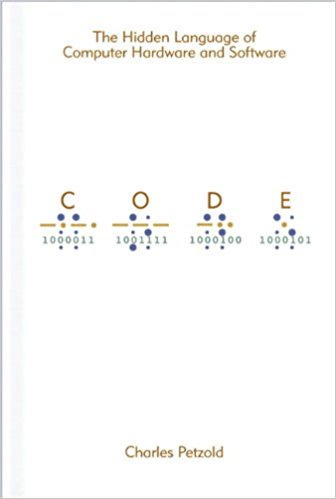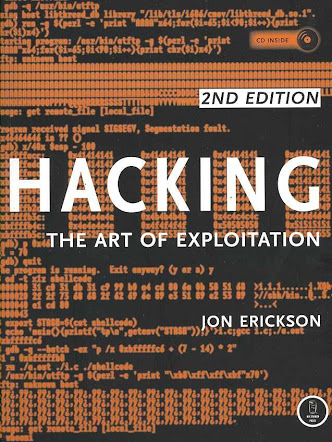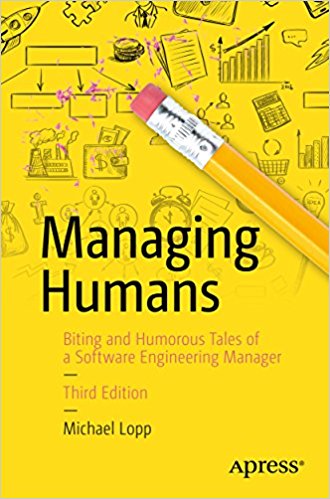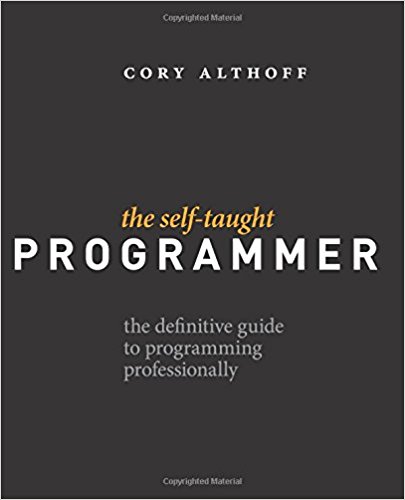9 best books about IT and programming that you might have missed

Remember, Lewis Carroll wrote: "Here you have to run as fast just to stay in the same place, but to get to another place, you need to run twice as fast"? This phrase is perfect for the IT world: technology is developing rapidly, and every day you need to learn something new in order to remain an in-demand specialist. Each programmer probably has 5-6 paper books that have become classics. On some of these books, we have already written . But in order to remain a popular coder, you need to constantly update the library. Last year, the DevMountain portal made a selection of seven not very popular books for novice programmers. It took into account not only the evaluation of the portal, but also reviews on Amazon, as well as recommendations of popular blogs. The author of GeekBrains, Ilya Bubnov, carefully studied this list, and also supplemented the selection with a pair of the freshest copies.
Python Tricks: A Buffet of Awesome Python Features

Opens our ranking best book on Python, released last year. Here are the best practice, concise solutions to complex problems, as well as very simple examples with step by step description.
')
Python Tricks is ideal for those who have already mastered the syntax and basic features of the language, but while "floating" in the algorithms. With this book, you can focus on practical skills, creating clean and, most importantly, working code.
The Complete Software Developer's Career Guide

John Sonmez is the author not only of this book, but also of one of the most popular programming blogs. In general, the book is the collection of his articles in a readable format. Here you will find answers to almost all common questions:
- How to find and fill gaps in your technical knowledge?
- What is better: work on a contract or office life for a salary?
- Which programming language to choose first?
- Where to gain experience to meet the requirements of most vacancies?
- Is there a need for higher education for the employment of programmers?
And so on. Sonmez finds the answer to almost any question that arises from a novice programmer. At the same time, it is difficult to call the book professional, there are practically no tips on code and tools. But from the point of view of the formation of a correct psychology - useful reading.
Code: The Hidden Language of Computer Hardware and Software

Charles Petzold is one of seven "pioneers of Windows" - the highest award of Microsoft, awarded for his contribution to the popularization of the OS. He has been writing about programming and IT since 1984. Code: ... was first published in 2000 and quickly became a true bestseller. Today it is one of the best books in the IT world, thanks to a simple explanation of how code is embedded in our lives and why it is extremely useful to study it. Petzold talks about the history, the development of technology, the first high-level languages, focusing on a wide audience. The result - even the child will understand what is described in “Code: ...”, after which he will make the first steps in programming without problems. By the way, this book is in the Russian translation.
Hacking: The Art of Exploitation, 2nd Edition

Simply put, hacking is simply a discipline that deals with finding and solving problems in code. Sometimes this requires unconventional approaches, sometimes it is just the use of obvious “holes”. Thanks to this book, readers will be able to look at the programming world from a hacker's point of view: they will learn about weak points in cryptography and hacking through networks, and practical tasks will allow anyone who wants to stretch their arms and brain.
The Beatles of the Brothers and the Big Data

The author of the book, Kevin Mitnick, calls himself "the most famous hacker in the world." His career began at the age of 13, when he hacked a travel card system to ride a bus in Los Angeles for free. He later committed several more cybercrimes of varying complexity, until eventually the FBI was caught. In prison, he spent 5 years - from 1995 to 2000. Mitnick now lectures on how to remain invisible in the era of Big Brother and big data. This book is a basic guide for beginners. Here, not only general tips, but also practical instructions on how not to program. For experienced programmers, Mitnick has books of "increased complexity" - "The Art of Intrusion: The Real Stories, Behind the Exploits of Hackers, Intruders and Deceivers" and "The Art of Deception: Controlling the Human Element of Security" .
Javascript Design Patterns

Design patterns exist in all languages, JavaScript is no exception. If you do not have a fundamental understanding of what it is - this book will be an excellent tutorial. There is always a beginner programmer somewhere who is struggling with the same problems as you. And there is always someone who has already solved this problem. Javascript Design Patterns contains many proven solutions for typical tasks, so this book is useful both for learning and as an assistant at work.
Managing Humans: Biting and Humorous Software Engineering Manager

Michael Lopp is another author of the popular blog (Rands in Repose), who decided to publish a book. Lopp has experience in Symantec, Netscape and Apple, so it’s interesting to get acquainted with this mixture of memoirs and career navigator for both managers and ordinary specialists. He tells what it is like to work in Silicon Valley, managing “dysfunctional bright people.” With this term Lopp describes the behavior of employees who ignore any differences of colleagues: by age, gender, status, culture, education, etc. Regardless of whose side you take when reading the book, you will surely endure some useful tips for yourself.
Make Your Own Neural Network

Creation of AI and neural networks is an actual trend in IT. Despite the fact that almost the entire practical part of the book is given in Python, it is based on mathematics and the theory of neural networks in general. Make Your Own Neural Network introduces readers to the concept of artificial intelligence through simple and clear examples. After reading this book, even those who do not understand anything in programming will gain comprehensive knowledge of the neural network and how they are used in the modern world.
The Self-Taught Programmer: The Definitive Guide To Programming Professionally

Corey Althoff is a self-taught programmer. When he got a job at eBay, he realized how far away he was from the status of a professional. This book is intended for beginners, but for experienced self-taught programmers it will be useful - for the development and refinement of professional skills. The topics are very general: object-oriented programming, the basics of computer architecture and algorithms, coding methods for software development.
What are the most recent or simply unreadable books on programming that you recommend?
Read also books from our other collections:
Useful books on the development of mobile games on Android and iOS
What to read about neural networks
List of books on offensive information security
Source: https://habr.com/ru/post/350672/
All Articles